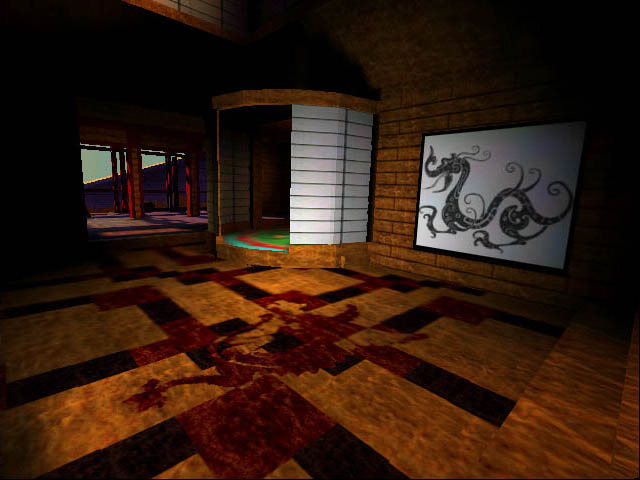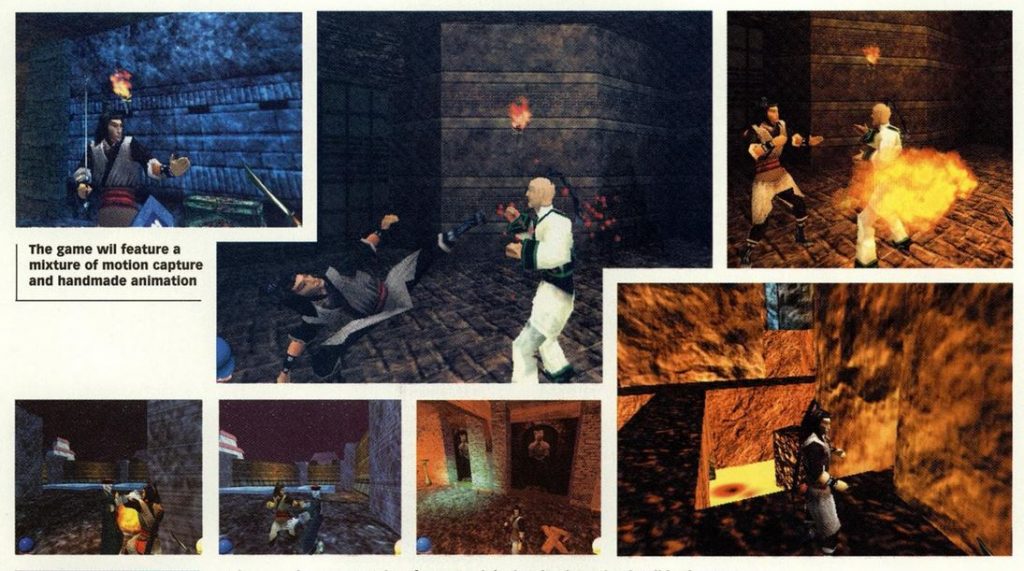Dragon is a cancelled action RPG that was in development around 1998 – 1999 by Eclipse Entertainment, planned to be published on PC by Microsoft. The game was based on the chinese mythology, somehow similar to another Microsoft published RPG: Jade Empire. The game was quite hyped at the time and it was featured on Eclipse’s old website and on their 3D Engine page:
“Step into a 3D world more beautiful, more dangerous, and more amazing than any you have ever seen. Explore an ancient Chinese temple, teeming with evil. Play as one of 6 champions, alone, with, or against friends. Bone crunching martial arts, sizzling spell effects, and richly detailed world make Dragon a Grandmaster among games.”
Some more details about the game were published in a preview by Next Generation magazine (issue 51, march 1999):
“Although start-up Eclipse has only one game under its belt (last year’s Jack Nicholas for Accolade), its employees have experience in the game industry everywhere from Infocom to EA to 3D0 to Origin. And Eclipse has already built the engine on which the game will be based, the impressive Genesis 3D, which supports such features as realtime light detraction, true mirrors, vertex morphing, and soft-skin polygon characters.”
“The story is based largely on Chinese mythology. You take the role of either the grandson (slower but stronger) or granddaughter (faster but weaker) of a martial arts master, who has been kidnapped and placed in the dungeons of Quinggong by your father. Quinggong is the Teetering Palace, a temple that borders the mountains, the ocean, and the spirit world. Your job? Infiltrate the temple, defeat your father’s army of supernatural beings, and rescue your grandfather.”
“Although play balancing has yet to begin (which may change things dramatically), the game is about 50% combat and 50% exploration and puzzle solving. The puzzles, thankfully, look to be more than just the “find the switch” dreck that has come to characterize too many action/adventures. In one room, for instance, players are confronted with a river of lava they must cross. Too wide to jump, the solution is to smash a huge clay pot in the room, causing water to flow onto the lava, cooling it.”
“Players fight by using a combination of martial arts and supernatural powers (spells) and grow in skill (by learning new fighting moves and spells) as the game progresses, and separate bars will measure physical and spiritual health.”
Unfortunately Dragon quietly vanished and was never released: today it seems no traces remain online of its existence, but this page on Unseen64. We don’t know what happened to the project, but in late 1999 WildTangent acquired the team: maybe their new owners were not interested in continuing such an ambitious game or Microsoft was not happy with how it was shaping up, deciding to cancel their collaboration.
Images:


